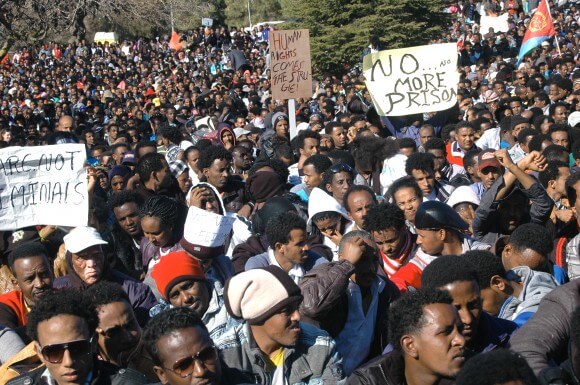
After a three-day strike, tens of thousands of African asylum seekers boarded buses to Jerusalem yesterday and protested in front of the Israeli Knesset demanding to meet with Israeli authorities.
“This is our second tactic, addressing the Israeli Knesset,” said organizer Mustaim Ali. “We are demanding to have a meeting with the prime minister and the interior minister inside.”
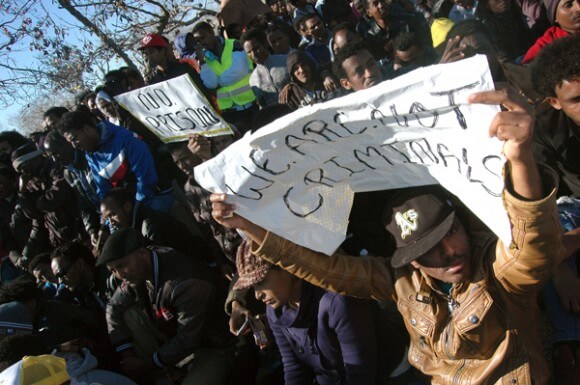
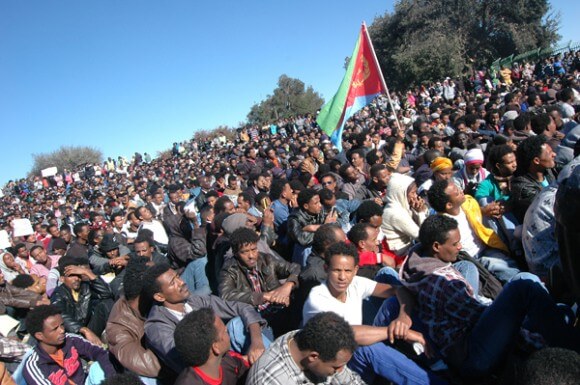
In the morning 10,000 asylum seekers congregated in Levinsky Park, the hub of refugee political activity near Tel Aviv’s central bus station. Ali and fellow organizers, a group of twenty-something activists from Eritrea, North Sudan and South Sudan, coordinated the flow of protesters into 200 rented city buses. After two hours the entire protest was relocated to Roses Park between the Israeli High Court and parliament.
“The idea of the movement is to find a solution for our situation. If we are part of the problem we must be part of the solution,” said Ali.
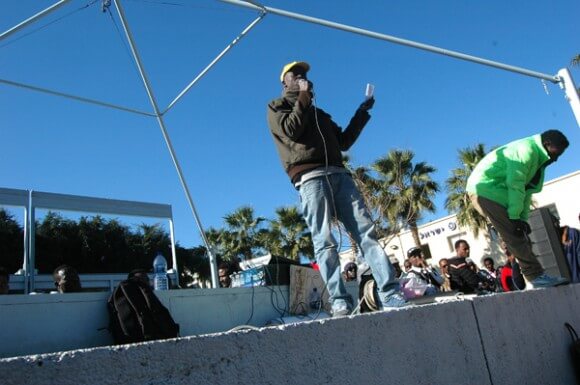
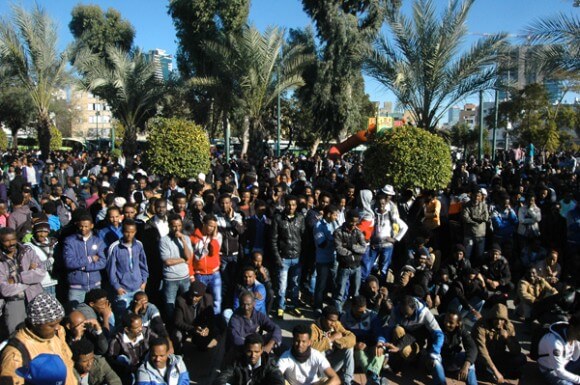
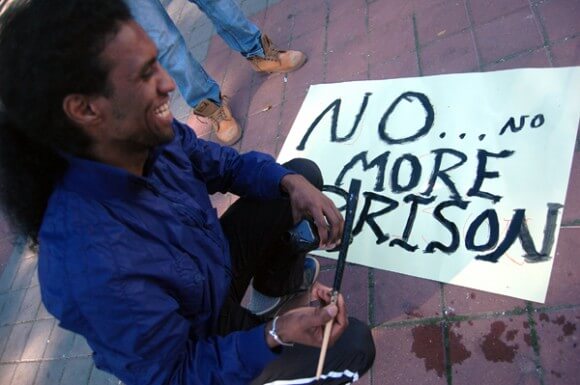
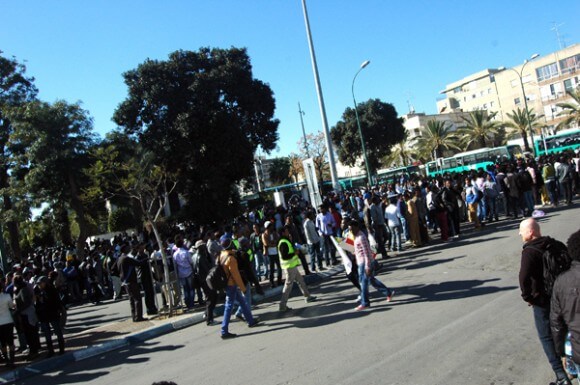
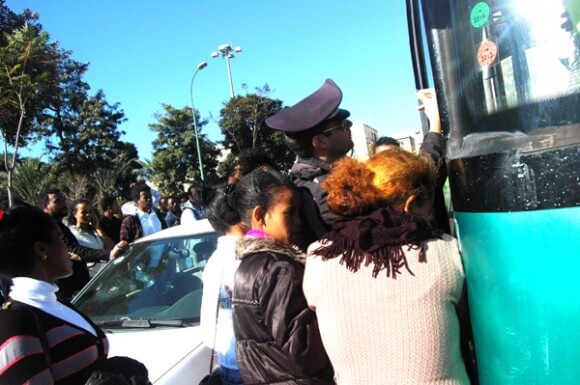
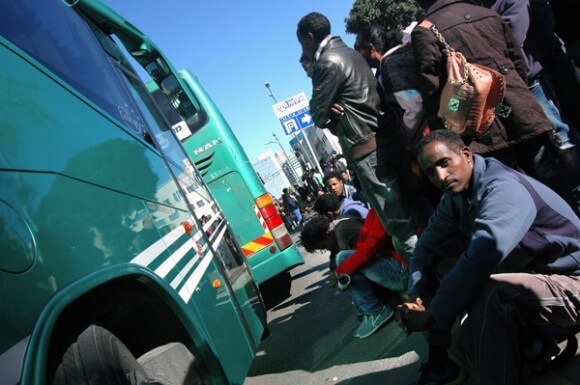
In Jerusalem, African speakers called on the government to stop sending asylum seekers back to home countries, Israel’s policy of “voluntary deportation” in which some Africans are given $3,000 and taken to their embassies for early morning rush passports and then driven directly to Ben Gurion airport. The policy has not yet ensnared Africans from Eritrea and North Sudan. The Jewish state is unable to deport these asylum seekers, as Israel does not have diplomatic relations with North Sudan, and Eritreans face imprisonment or death if they are “hot returned.” And so the 60,000 African asylum seekers cannot be sent back to their country of origin. Africans from Darfur also have a special status of “collective non-removal” from Israel.
Yet since mid-December the interior ministry has cancelled renewing “conditional release” permits, visas that allow Africans to remain in Israel. Even with those visas it is illegal for them to work or seek services such as medical care. Facing imprisonment for the duration of their refuge in Israel, African are demanding a “fair and transparent process,” to file for asylum, said Ali.
However, the Israeli government has remained firm in its decision to not review any asylum claims. While in other countries Eritrean refugee status seekers have a 70 percent, and Sudanese a 50 percent acceptance rate, Israeli officials continue to assert the Africans in Israel are economic migrants, not persons fleeing persecution. Only “a fraction of one percent” are “legitimate refugees,” said Israeli prime minister spokesman Mark Regev in 2012 in an interview with Omar Rahman.
That same year Regev announced a four-pronged plan that the state began implementing earlier this winter. The project included imprisoning refugees indefinitely in a new desert detention facility, Holot. Regev said it’s not a jail, but more like a halfway house for homeless asylum seekers under armed guard. It is “to make sure their needs are taken care of, that they have housing and healthcare and other services, until…you know… humanitarian treatment,” he continued.

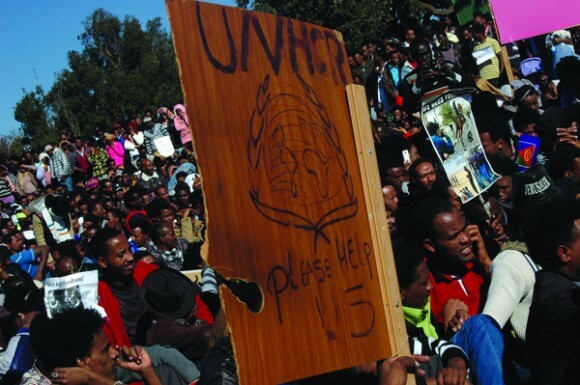
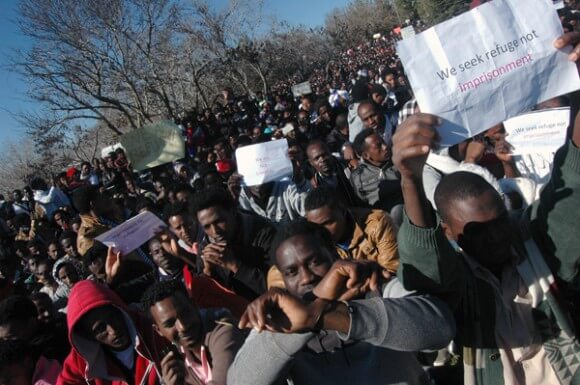

By afternoon in Jerusalem protesters were joined by African asylum seekers living in the holy city and the crowd expanded to some 20,000 demonstrators seated on the grassy field.
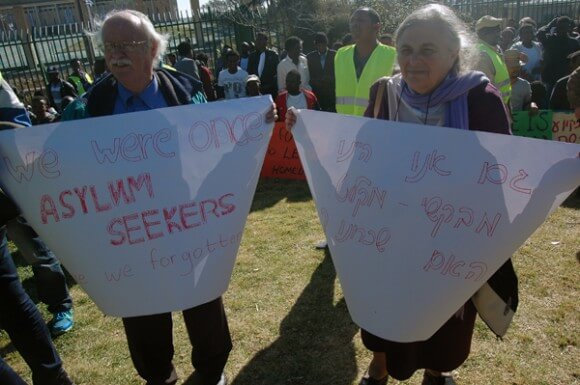
“Why isn’t everyone here” said Veronica Cohen, 69, a Holocaust survivor who held a sign in Hebrew that read: “We were once asylum seekers—have we forgotten.” Cohen and her husband Elliot Cohen, 71, are regulars at protests for African refugee rights. “It’s unbelievable that the Jewish state should behave like this towards asylum seekers.” Elliot Cohen added, “My wife could have used asylum in the 1940s in the ghetto in Budapest.”
On Tuesday African asylum seeker protest organizers announced the strike would continue indefinitely. Today, thousands again packed Levinsky Park for a peoples’ assembly to plan future actions.


Must be driving the zios nuts.
Gotta love it.Go asylum seekers.Show Israel it should not brag so much about what a light unto the Nations it is,(not).
Interesting that this African influx to Israel — fallout from capitalism’s ravishing of economies and nature, including global warming — is getting a different treatment in Israel than the Palestine problem.
How is this being presented in USA, EU?
While the STORY is always interesting, the TELLING OF THE STORY is also (or more) interesting.
@- pabelmount
It’s not being presented to the American public via tv cable news or networks news, which is where the average American goes to catch up on the breaking news.
If these people were only being butchered in Eritrea (which they are), butchered in Sudan (which they are) and turned away from Egypt (which they are), this wouldn’t even be on your radar. It is not until their situation becomes a liability to Jews that you champion their plight. Your concern for them is as concocted as your concern for the palestinians… it is just a means to another end.
In this context, just want to recommend a 2003 movie I recently watched called “James’ Journey to Jerusalem,” made by Ra’anan Alexandrowicz, the Israeli director who also made “The Law in These Parts.”
It’s the story of a young African man – country of origin not specified, but he speaks Zulu – who travels to Israel not in a quest for asylum but to make a pilgrimage to Jerusalem, at the behest of his Christian church. The Israelis promptly toss him in jail – there’s a great scene where he tries to explain himself to the border police or some such – but he gets out because an Israeli who has connections with the police needs another immigrant worker for his cleaning business. James is taken to a rundown Tel Aviv apartment packed with other immigrant (mostly African) workers and forced to work – they get paid a bit, but also hit with all kinds of petty charges, and since the businessman has their passports, they are nearly slaves. James closely observes Israeli ways, eventually starts his own little business behind the back of his boss, and makes a bunch of money, but in the end Israeli racism does him in.
Doesn’t even mention the Palestinians, but otherwise a sharp portrayal of Israeli culture, and very relevant to the current situation, even though it’s more than a decade old and the details are different. Amazingly, it gets ratings of 90 from both critics and audiences on Rotten Tomatoes.
I stumbled across it while googling for info about Jesus’s brother James (don’t ask why…), then found the DVD on Netflix. I don’t see it available for streaming anywhere, but used copies of the DVD are on sale cheap on Amazon.